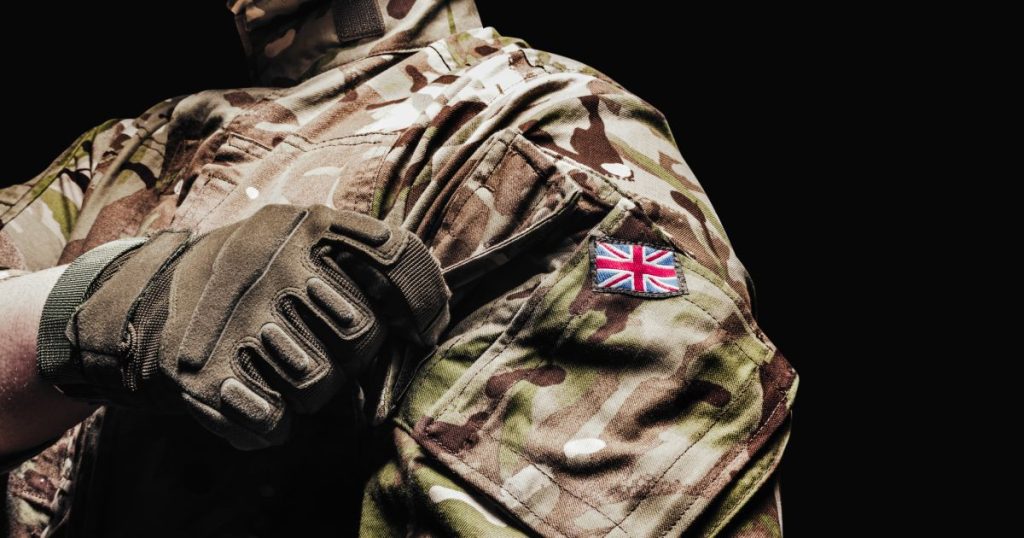The British Army assesses each application on its own merits.
Others are reading now
The British Army assesses each application on its own merits.
Could You Be Exempt from Conscription If WW3 Broke Out?

With global tensions rising and military recruitment concerns growing in the UK, talk of conscription has resurfaced.
Though unlikely, if it were reintroduced, certain medical conditions could exempt individuals from being drafted.
Here’s a breakdown of the key health-related exemptions currently recognised by the British Armed Forces.
Also read
Back and Spine Problems

Chronic or recurrent back pain, a history of spinal surgery, or structural issues with the spine or spinal cord could rule out military service.
These conditions may impair physical ability, especially given the demanding nature of basic training and combat duties.
Blood Disorders That Could Disqualify You

Individuals with blood conditions like sickle cell disease, thalassaemia, or clotting disorders may be deemed unfit.
More serious illnesses such as leukaemia, lymphoma, or hepatitis B/C are also potential grounds for exemption.
Joint, Bone, and Mobility Issues

Past bone fractures, joint diseases like rheumatoid arthritis or gout, and conditions such as clubfoot or hypermobility syndrome could all impact eligibility.
Even injuries that limit movement, particularly in the knees or shoulders, may lead to disqualification.
Heart and Circulatory Conditions

If you’ve been diagnosed with heart disease, high blood pressure, cardiomyopathy, or abnormal heart rhythms, conscription could be off the table.
These conditions can pose serious risks during physically intense activities.
Dental Health Can Play a Role

Surprisingly, poor dental hygiene or ongoing dental treatments might prevent someone from being called up.
In military life, dental emergencies can be difficult to manage in the field.
Ear and Hearing Issues

Problems like chronic ear infections, a perforated eardrum, or the need for grommets may be cause for exemption.
Severe hearing loss or deafness would also affect a recruit’s ability to operate safely in noisy and chaotic combat environments.
Eye Conditions That May Disqualify You

Glaucoma, keratoconus, and other chronic eye diseases are among the disqualifying factors.
Double vision (diplopia), vision loss in one eye, or any condition that significantly impacts sight can prevent acceptance into the forces.
Digestive and Gastrointestinal Disorders

Long-term conditions such as Crohn’s disease, ulcerative colitis, or chronic indigestion may lead to exclusion.
Surgical removal of the spleen or active haemorrhoids are also on the list of possible disqualifiers.
Kidney and Urologic Conditions

Kidney stones, congenital kidney anomalies, or recurrent infections can be problematic.
Individuals with urinary incontinence or certain genital infections may also face barriers to military service.
Neurological Disorders and Brain Injuries

Conditions like epilepsy, migraines, multiple sclerosis, and any head injuries with lasting neurological effects are major red flags for conscription.
These can affect cognition, coordination, and general fitness for service.
Mental Health Matters

Mental health history is taken seriously.
Those with anxiety, depression, PTSD, or personality disorders — along with past instances of self-harm or addiction — could be exempt due to the psychological strain of military life.
Respiratory Conditions

Chronic asthma, tuberculosis, emphysema, or cystic fibrosis may disqualify individuals from serving.
Respiratory resilience is crucial, especially in physically demanding or hazardous environments.
Skin Conditions May Impact Eligibility

Severe psoriasis, dermatitis, or other widespread skin diseases might prevent someone from being drafted.
Milder cases could still be reviewed individually, depending on severity and management.
Other Notable Conditions That Could Grant Exemption

Certain food allergies, Raynaud’s phenomenon, diabetes, and being an organ transplant recipient are among the miscellaneous conditions that may prevent service.
Long-term medication dependency — including for COVID-related complications — could also be a deciding factor.
Final Word: It’s Case by Case

The British Army assesses each application on its own merits.
Even if you’ve experienced one or more of the conditions listed, you may still be considered eligible depending on your overall health, recovery, and management of symptoms.


